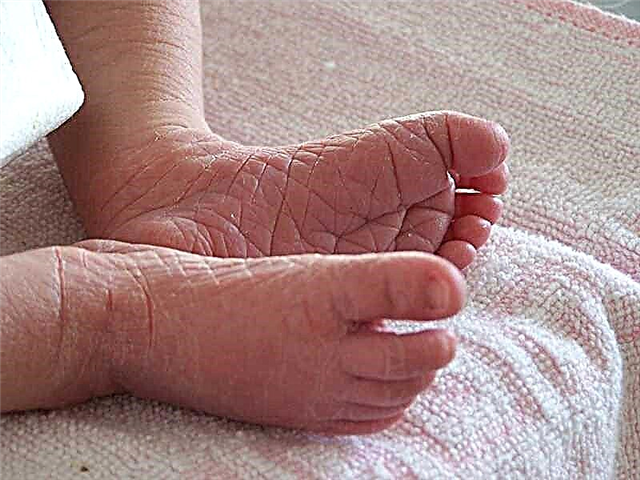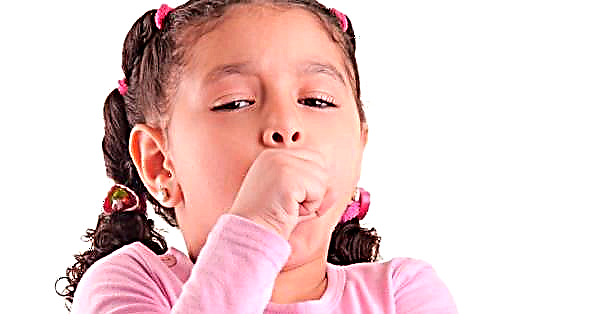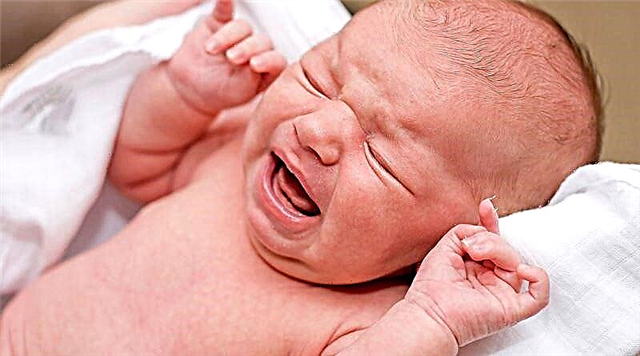
Fever, poor appetite, moods, pain in the gums and other uncomfortable symptoms are quite often observed during teething of milk teeth and torment the little one. To help the baby, mothers sometimes decide to give one of the antipyretic drugs, for example, Nurofen. But is it worth using this medicine in children with teething, how does it affect the child's body and when is it contraindicated for babies?

Reasons for the rise in temperature when teeth are cut
Fever is one of the most common symptoms of new teeth in babies. The rise in temperature is due to the inflammatory process in the gums, which occurs due to the action of active substances that soften the tissues and make them looser. In addition, local immunity decreases somewhat during teething.
Most often, a rise in temperature is noted by mothers of children whose molars (molars) are cut. Because of the large area of their crowns, babies are also tormented by painful sensations. Incisors in many babies appear without fever, but the upper canines, also called "eye" teeth, not only very often provoke fever, but also erupt with severe pain.
The duration of the rise in temperature in babies with cutting milk teeth is different, because each toddler reacts to a new tooth individually. Some people have a fever for only one day, and sometimes the fever may not subside for up to a week, for example, if several teeth are going to "hatch" at once.
However, on average, an increase in temperature is observed within one to three days.

Should I give Nurofen to a child with teething?
Most often, the temperature in babies whose milk teeth are cut rises to + 37 + 37.50C. This situation does not require any treatment, but mom should watch the baby to notice a further rise in temperature. In more rare cases, a toddler with a cutting tooth has a fever, in which the thermometer shows from +37.5 to +38 degrees.
As a rule, this temperature is also not "knocked down" if the child tolerates it normally. If the baby's condition has deteriorated significantly or the fever can harm him (for example, the baby has some kind of serious illness), the baby can be given an antipyretic agent even with such thermometer readings.
Very rarely, the child's temperature rises to +39 and above, but the cause of such a reaction may not be an erupting tooth, but some kind of infection.
If the thermometer shows such high numbers, you should immediately consult a doctor to make sure that the fever is not a symptom of any illness dangerous for the baby.

Nurofen's action is provided by its ability to inhibit the synthesis of prostaglandins. Such biological substances are formed during the inflammatory process and provoke the appearance of pain, as well as an increase in temperature. It is by preventing their formation that Nurofen's intake effectively fights fever and reduces or completely eliminates pain.

Which form of medication should I choose?
To reduce fever and relieve pain, use specially designed for children Nurofen forms:
- Rectal suppositories... They are sold in packs of 10 packed in aluminum blisters. In each suppository, ibuprofen at a dose of 60 mg acts as the main ingredient. In addition, the drug contains fats so that the suppository is easily inserted into the intestines and dissolves faster.

- Suspension. This medicine has a pleasant strawberry or orange smell and taste, and one bottle contains 100, 200 or 150 ml of syrup. A dosage syringe is attached to it, allowing you to accurately measure the required volume of medicine. 5 ml of this Nurofen contains 100 mg of the active ingredient, which is supplemented with glycerol, gum, maltitol and other substances. At the same time, the medicine does not contain dyes and sugar.

The drug is also available in tablets, but they are not given to children until the age of six (since each tablet contains 200 mg of ibuprofen), so they are not used during the teething period, but can be used for toothache in schoolchildren, when the teeth begin to change to molars.
If the baby has a temperature reaction to a cutting milk tooth, then when choosing a dosage form of Nurofen you should consider the following points:
- Both suspension and suppositories are allowed to be used in babies over three months old. In this case, suppositories are used up to two years of age, and liquid Nurofen - up to 12 years.
- According to mothers, it is more convenient and faster for babies to inject a candle than to give medicine by mouth.
- The syrup is easier to dose, taking into account the body weight of the toddler.
- The action of suppositories starts faster and also takes longer.
- For children with allergies, candles are preferable, because they do not contain chemical excipients (except fats), and the suspension includes flavors and other additives that can provoke allergies.

Dosage for children
Nurofen in suppositories is injected into the child's rectum one by one. If the child weighs 6-8 kg and his age is from 3 to 9 months, the drug can be used up to 3 times a day. For children aged 9-24 months with a body weight of 8 to 12 kg, the drug can be prescribed four times.
The suspension is poured into the baby's mouth with a dosing syringe, slowly pressing on its plunger. It is preferable to give this form of Nurofen after feeding in the following dosage:
- A child of 3-6 months is allowed to give the medicine no more than 3 times a day in a single dose of 2.5 ml.
- To toddler 6-12 months, the suspension is given in the same dosage, but 3-4 times a day.
- For children from one to three years old, the medication is prescribed 5 ml per appointment, and for patients 4-6 years old - 7.5 ml.
- If pains have arisen in a child over six years old, he can be given both a suspension (10 ml at the age of 7-9 and 15 ml at the age of 10-12) and tablets.
A minimum of 6 hours should elapse between the use of any form of Nurofen. Most often, the drug is used at intervals of 8 hours, and the duration of treatment for fever should not exceed 3 days. If the temperature reaction persists, consult a doctor.

When is it not prescribed for teething?
The drug should not be given without consulting a doctor, since it has a very extensive list of contraindications, including gastrointestinal ulcers, liver pathologies, hyperkalemia, cerebral bleeding, ibuprofen intolerance, kidney disease, and other health problems.
There are also many diseases in which the use of Nurofen requires the supervision of a pediatrician, for example, anemia and bronchial asthma. In addition, this medication is incompatible with many other medicines, which should also be considered before using it.

What can be replaced?
Ibuprofen can serve as an effective substitute for Nurofen for a child with teething fever, since it not only contains the same active substance, but also comes in the same forms (suppositories, suspension, tablets, etc.). In addition, paracetamol preparations, for example, Calpol, Efferalgan or Panadol, have a similar effect.
Very often, babies with teething teeth are additionally prescribed local remedies that can reduce pain and eliminate the inflammatory process. These drugs include Kalgel, Holisal, Dentinox, Pansoral, Baby Doctor and other dental gels.



